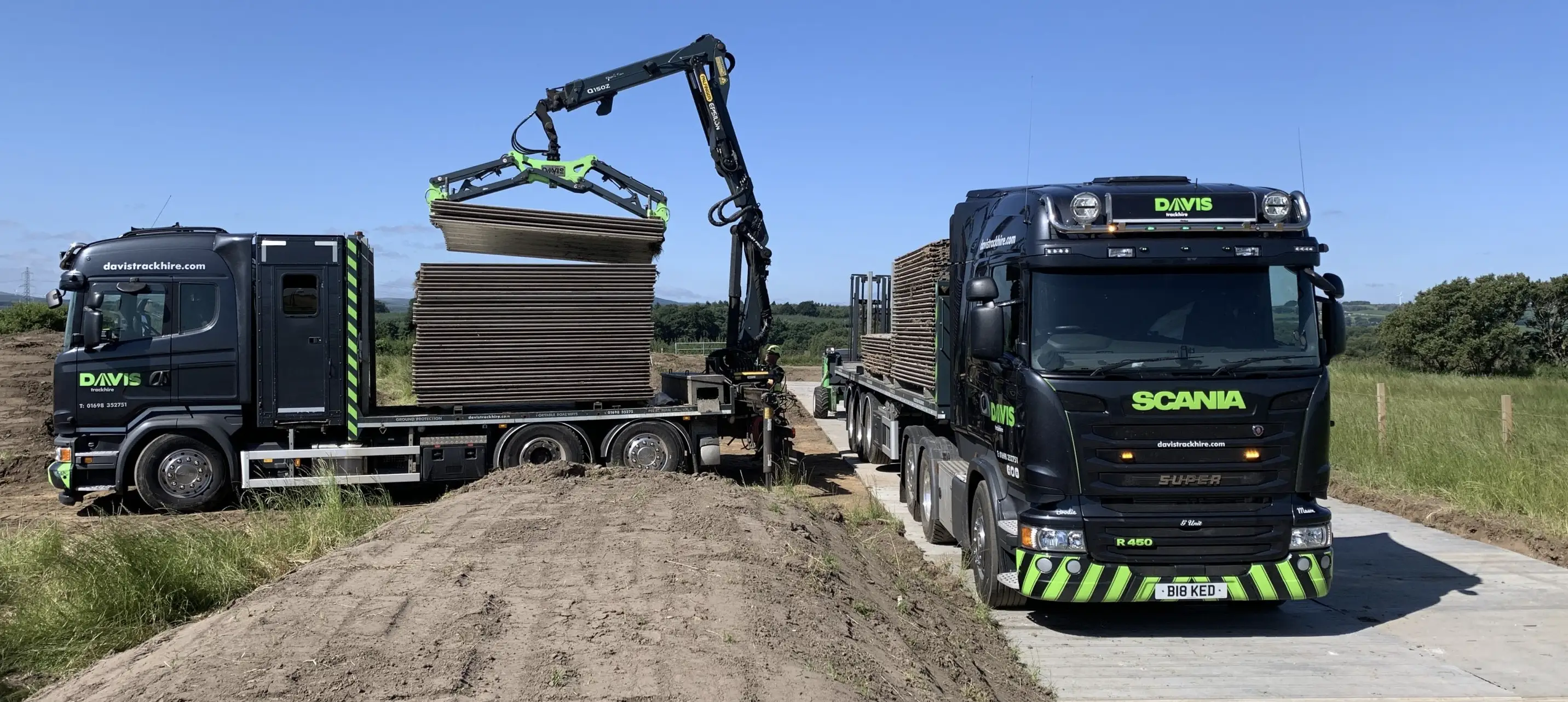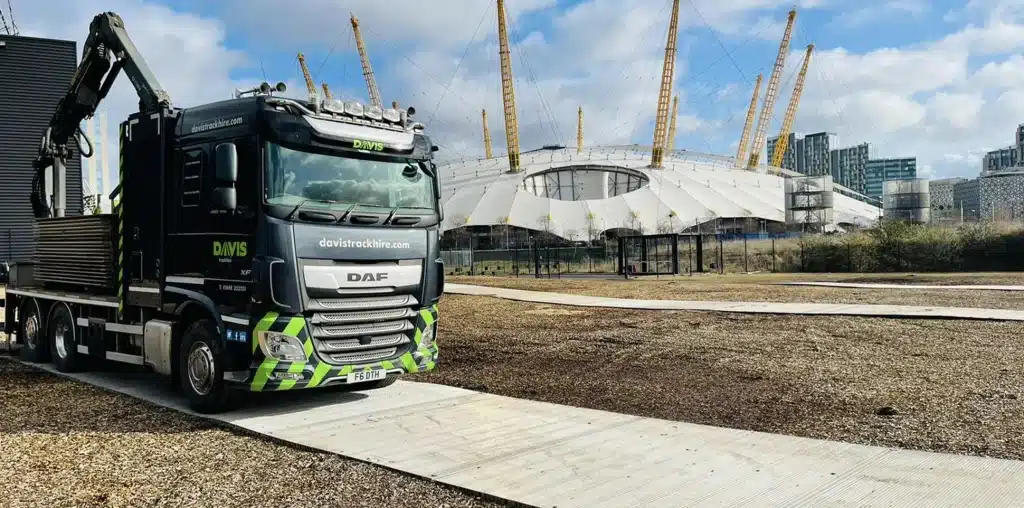
Temporary roadway mats are not directly a legal requirement; however, the use of ground mats is often written into contracts, and made mandatory by the council, insurers, agricultural groups, construction companies and more…
Not using temporary roadway mats can result in a myriad of costly fines, civil court cases, and punishments. In some circumstances, legal cases.
Temporary roadway mats are not just a ‘nice to have’ to help the job run smoother. They are essential for site safety, pedestrian safety, ground safety, as well as nature and wildlife preservation.

Most local councils enforce strict regulations on roadworks, especially those conducted near grass verges or country lanes.
This is for two reasons, firstly, many councils have laws in place to stop people parking on grass verges. For vehicles to access works, this would likely mean parking on the verge. For this reason, they require temporary road mats.
Secondly, there is a UK law which permits quantities of mud on the roads.
Anyone who deposits mud onto the road can be liable for a list of charges. They could even face prosecution and a fine.
The Highways Act 1980 states the do’s and don’ts when it comes to this topic. Here are some relevant examples:
Most roadside or highway maintenance requires the use of temporary roadway mats. To prevent the disturbance and destruction of the surrounding soft ground, and to avoid its dispersion into the road causing accidents, users must adhere to this measure. Failure to do so may result in the filing of personal injury, property damage, public nuisance, or negligence cases.
Where works are being completed or an event is being hosted on listed grounds, temporary roadway mats are required. Councils explicitly hold the right to fine construction companies or event organisers for any damage caused to the ground and trees as a result of the works or event.

Temporary roadway mats are compulsory to protect grass areas from potential damage caused by the footfall of pedestrians and vehicles.
You can read more about temporary roadway mats on the listed grounds, here.
Construction companies of all kinds should have very stringent insurance policies as accidents on site are unfortunately common.
“Great Britain’s construction sector recorded 45 fatal injuries during 2022/23, up from 29 the previous year, the latest Health and Safety Executive (HSE) data shows.”
– Cristina Lago, Deputy Editor, Construction Management.
Insurers are aware that many accidents on site result from workers being struck by moving vehicles, trapped by overturning objects, and coming into contact with moving machinery. Proper ground protection support, in the form of temporary roadway mats, has the potential to prevent such incidents.

– Image HSE.gov.uk
Companies who work on tricky terrains and require access for workers, pedestrians, vehicles and machinery, must take appropriate measures to make the ground as safe as possible. This includes hiring temporary roadway mats. Adhering to this is necessary to meet health and safety regulations and comply with insurance policy terms and conditions.
Not using ground protection, leading to a preventable on-site accident, will result in the insurer refusing to pay out. Their policy will be voided and the business owner will bear the costs of court proceedings and compensation. Most importantly, using ground protection could prevent injuries and save lives.
How construction companies use the temporary roadway mats can result in penalties.
Users must use them correctly following the health and safety procedures of the hire companies.
At Davis Trackhire, we thoroughly assess each site and the required works. This is so we can provide the safest level of temporary roadway mats. However, it is the user’s responsibility to ensure that they provide us with accurate information. This means, ensuring that only appropriately weighted vehicles are travelling over our ground mats. They must not not exceed the load-bearing capacity.
Our team checks the ground for any sharp protrusions before laying the mats. But, it is our client’s responsibility to make sure no other damages occur. For example, damages from any onsite mechanical equipment. If damages occur to any mats, work must halt. Reporting the issue ensures the replacement of the mat and reassessment of ground support.
Some companies may consider skipping the use of temporary road mats if the ground is dry and reasonably flat. However, we think many of the reasons above highlight that it is always worth investing in the hire of temporary roadway mats.
If you’d like any assistance with hiring temporary roadway mats, please contact our team for further help.
Contact us today to arrange a free no obligation quotation for your next project or event. Please complete the form below and one of our team of experts will contact you within 24hrs.
Alternatively contact us on 01698 352751 for an immediate response.